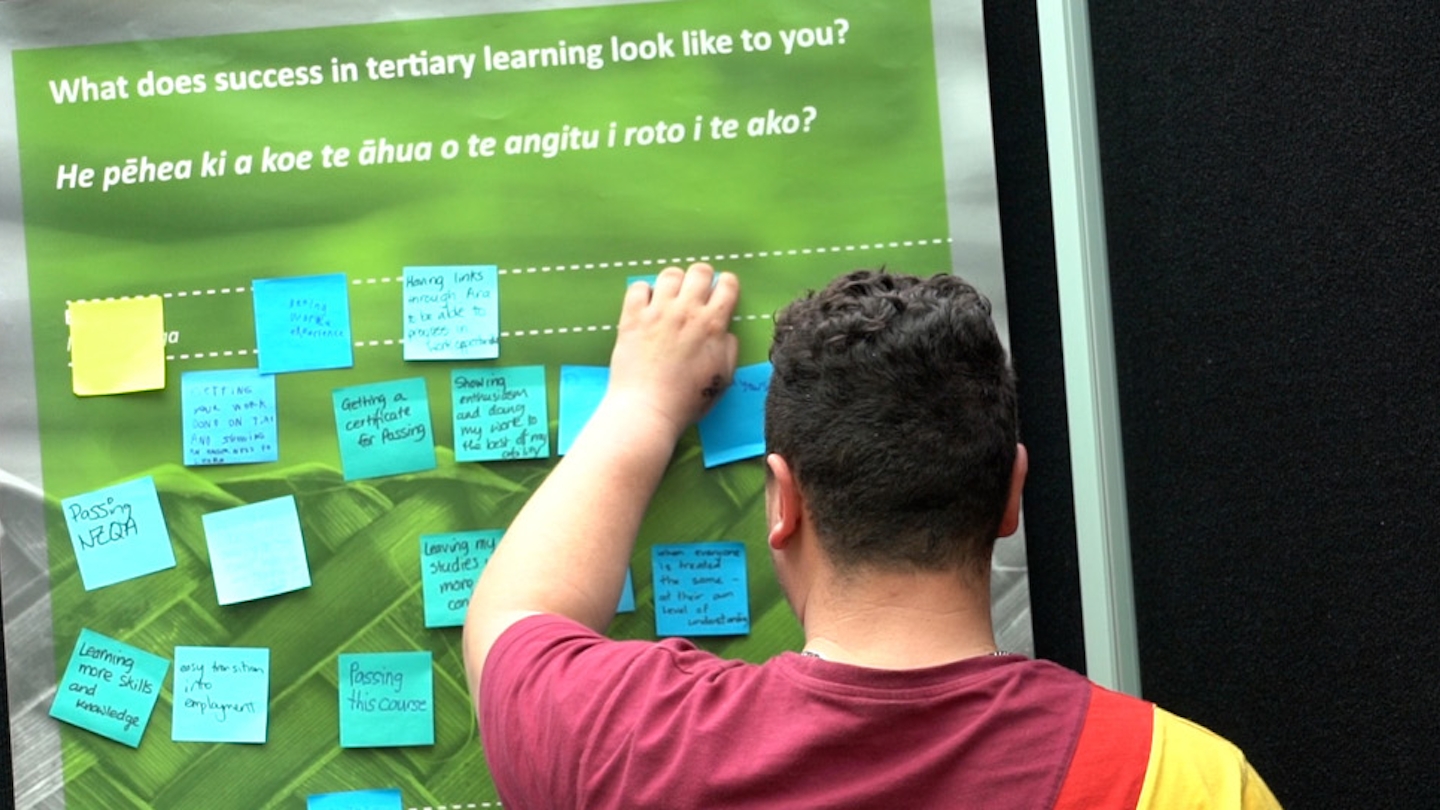
Understanding the experience of our learners is critical to progressing the Te Pūkenga commitment to a vocational education system with learners at the centre.
Over ten weeks a group from across the Te Pūkenga network undertook 75 engagements with learners right across New Zealand. The research team travelled to 15 locations, from Whangarei through to Invercargill, to ensure we heard from a wide range of learners and regions.
There were 30 engagements across campuses and ITO sites. Many learners, staff, and whānau shared with the team their experiences of what enables, and what is a barrier, to learner success. This engagement involved about 1,000 people. The research group also facilitated 45 focus groups with 300 people. In particular, we heard from underserved learners, learners transitioning into tertiary learning, learners with support needs, and staff.
So what will Te Pūkenga now do with this rich information? The team has worked hard in the lead up to the end of the year to review the many stories we heard, comprising 4,000 post-it notes that identified 170 common enablers and barriers and around 4,500 narratives from which initial key insights and themes are being developed. In the New Year, we will use the mahi to develop learner personas reflecting the varied groups of learners and staff we heard from. The data will also be used to map their journeys.
This project will contribute to Te Pukenga’s operating model, as well as the broader mahi we need to do across our network to improve the Learner Journey & Experience. We will share the findings with learners and others in the New Year.
The success of collating this data was not only down to the contribution of our learners but also to our learner-centred staff network, a wider dedicated group of staff from subsidiaries and Transitional ITOs who worked alongside the research team. Te Pūkenga looks forward to continuing to work alongside this network of staff in 2021.
Karen Te Puke, DCE Customer Experience and Engagement at ARA says, “I have worked in various roles in our sector and alongside ITOs for a couple of decades, so I know first-hand just how passionate, talented and committed people are throughout our network. We are also innately collaborative. We simply find it hard to carve out the space to be collaborative within our own organisations, let alone across such a vast sector.
“A bonus has been the opportunity to Zoom in and see everyone else involved in the project and to hear the key themes from workshops which have run from Northland to Invercargill. As well as having a range of great programmes, ākonga value a positive learning environment, and proactive and supportive relationships with tutors or workplace trainers/advisors. They want the same with their ‘class’ mates. Many learners said they would like more help during enrolment and in the first days of being in their new tertiary environment. Holistic wellbeing support is also a critical factor for many ākonga including Māori, Pacific and those with disabilities and other learning support needs. It is inspiring to know that our new operating model is being developed based on this wealth of rich information gathered from the voices of our learners.”
“The engagement with our learners was both thorough and authentic, says Desiree Williams, Director of Māori Learner Success, Open Polytechnic. “The experience left all involved feeling confident that learner perspectives will be considered carefully in the design of our new vocational education system. It was also empowering to be part of the network forum and share our various experiences. This confirmed that we have some key themes nationally to work on as well as giving us a strong message that we need to remain responsive to the communities we serve.”
“The network forum has been awesome,” says Debbie Preston, Te Pūkenga Ākonga at the Centre Co-Lead. “Without their support, we would not have been able to set this research up, get the learners invited and involved, and make sure it ran as smoothly and successfully as it has.”

